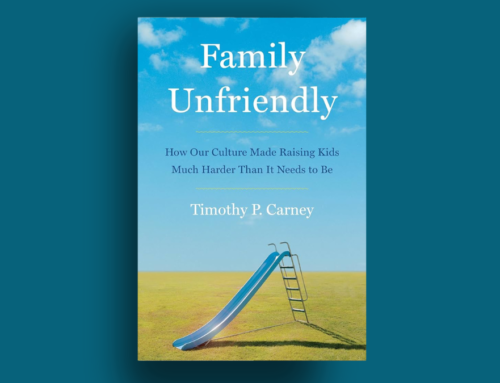In This Edition:
End and Beginning
Don’t Stay At Shiloh!
God Sets No Limit
Wonderful News
The Wonder of Redemption
True Liberty
Scale Any Wall (this post should also be read with “Keep Moving Up”)
Keep Moving Up
Love Without Measure
Liberty Not License
Our Life Is In Christ
“What I believe about God is the most important thing about me.”
~A.W. Tozer
End and Beginning
By Vance Havner
Woe is me! For I am undone.
Isaiah 6:5
Isaiah was come to the end of himself. Like Moses in Midian, like Job when he saw God, like Daniel with his comeliness turned to corruption and Habakkuk with rottenness entering his bones; like Peter at Tiberias and Paul with his thorn, he has come to the end of all feeling and trying and praying, the end of all he is and has, to where God begins.
Blessed is that hour of holy desperation when a man reaches that extremity which is God’s opportunity and moves out of the wreck of himself into Christ. Nothing in his hand he brings, but just as he is without one plea he takes up residence with Christ in God. He puts no value on anything he has or is, attaches no importance to his feelings or faith or prayers. Christ is everything. We waste many years trying to construct some sort of refuge out of the rubbish of ourselves, until we abandon it all and dwell in Another. From then on we have no confidence in the flesh but humbly look unto Him for salvation and the “all things” that go with it, His sufficient grace for the whole man, for every day, for any need, that we, having all sufficiency in all things, may abound to every good work.
Don’t Stay At Shiloh!
By Vance Havner
So the woman went her way, and did eat, and her countenance was no more sad.
I Samuel 1:18
Hannah had not been eating and she had been sad (v. 7). But now she had poured out her heart to God, and had entered into a covenant with Him, and she trusted Him for the answer to her prayer. Notice that she did not run up to Shiloh every day and “agonize” and pray the same prayer over and over. It would have looked very religious, but it would have been rankest unbelief. Instead she “went her way, and did eat,” and resumed a normal life, “and her countenance was no more sad.” She did not live in alternate hope and fear, she lived happily with a glad face. Some of us need sorely to learn a lesson from Hannah. It is no mark of piety to return to Shiloh every day fasting and weeping. Faith settles with God and then eats a good dinner and goes its way looking happy, not hoping but believing. Nervous, uncertain souls, forever begging God, are really unbelievers. Faith takes His Word for it and lives normally and happily.
Don’t stay at Shiloh! God your way, eat, and smile!
GOD SETS NO LIMIT
By A.W. Tozer
Do you know that there are Bible “interpreters” now who believe they can set rules as to how much we can have of God? However, the Lord Himself has promised that as far as He is concerned, He is willing to keep the candles of my soul brightly burning! So, my heart tells me to ignore the modern scribes whose interpretations, I fear, are forcing the Spirit, the blessed Dove, to fold His wings and be silent. I turn rather to one of Dr. A.B. Simpson’s hymns rarely sung now, probably because very few believers have this experience of which he wrote: I take the hand of love divine, I count each precious promise mine With this eternal countersign – I take – He undertakes! I take Thee, blessed Lord, I give myself to Thee; And Thou, according to Thy Word Dost undertake for me!
Verse
Let no man deceive you with vain words. Ephesians 5:6
Thought
The Lord Himself has promised that as far as He is concerned, He is willing to keep the candles of my soul brightly burning!
Prayer
Lord, thank you for giving yourself to me more than I could ever understand, and thank you undertaking for me.
Wonderful News
by Pastor Cornelius R. Stam
The newspapers are filled with sensational news these days, but the divine extension of this present age of grace is the most sensational news of all, yet most newspapers rarely, if ever, mention it.
We are prone to take the blessings of our times too much for granted. We forget too easily that for more than 1900 years the world has been ripe for God’s judgment — ever since His Son, the Lord Jesus Christ, was crucified and sent from this world a royal Exile.
All through the Old Testament Psalms and prophets it is clear that the world’s rejection of Christ was to be visited with awful judgment. The Second Psalm, describing the world’s rejection of “the Lord and His Anointed,” goes on to say: “He that sitteth in the heavens shall laugh: the Lord shall have them in derision. Then shall He speak unto them in His wrath and vex them in His sore displeasure.” In Psalm 110:1, too, we have the Father saying to His rejected Son: “Sit Thou at My right hand, until I make Thine enemies Thy footstool.”
Yet, when all seemed ready for the divine judgment to fall, God interrupted the prophetic program and saved Saul of Tarsus, the “chief of sinners,” the leader of the world’s rebellion against Christ. More: He appointed this Saul, as the Apostle Paul, to proclaim “the gospel of the grace of God” (Acts 20:24), the wonderful news that because Christ suffered, the Just for the unjust, at Calvary, any sinner may be saved by grace through faith, apart from religious or other works.
“The wages of sin is death, but the gift of God is eternal life, through Jesus Christ our Lord” (Romans 6:23). And therefore: “To him that worketh not, but believeth on Him that justifieth the ungodly, his faith is counted for righteousness” (Romans 4:5).
Judgment will come, but thank God, He has in grace delayed it until now.
“Behold, now is the accepted time; behold, now is the day of salvation” (II Corinthians 6:2).
The Wonder of Redemption
By A.W. Tozer
My brethren in the Christian faith, stand with me in defense of this basic doctrine: The living God did not degrade Himself in the Incarnation. When the Word was made flesh, there was no compromise on God’s part! It is plain in the ancient Athanasian Creed that the early church fathers were cautious at this point of doctrine. They would not allow us to believe that God, in the Incarnation, became flesh by a coming down of the Deity into flesh, but rather by the taking of mankind into God. That is the wonder of redemption! In the past, the mythical gods of the nations were not strangers to compromise. But the holy God who is God, our heavenly Father, could never compromise Himself! He remained ever God and everything else remained not God. That gulf still existed even after Jesus Christ had become man and dwelt among us. This much, then, we can know about the acts of God—He will never back out of His bargain. This amazing union of man with God is effected unto perpetuity!
Verse
For in him dwelleth all the fullness of the Godhead bodily. Colossians 2:9
Thought
The living God did not degrade Himself in the Incarnation. When the Word was made flesh, there was no compromise on God’s part!
Prayer
Lord, I am amazed, and do not claim to understand how You could take on the form of man and yet still be completely yourself. Though I do not understand, I am truly thankful, because it allowed me to know You better.
True Liberty
by Pastor Cornelius R. Stam
As true Americans celebrate their liberty, true Christians should rejoice in the even greater liberty which they have in Christ.
Our Lord said: “Ye shall know the truth, and the truth shall make you free” and “If the Son, therefore, shall make you free, ye shall be free indeed” (John 8:32,36). Likewise St. Paul declares that believers in Christ have been made “free from sin” and have become “servants to God,” who deals with us in grace (Romans 6:22).
It is strange that so many sincere religious people actually wish to be in bondage to the Mosaic Law, which can only judge and condemn them for their sins. Peter called the law: “a yoke… which neither our fathers nor we were able to bear” (Acts 15:10). Paul called it “the handwriting of decrees, that was against us, which was contrary to us” (Colossians 2:14). He called it “the ministration of death” and “the ministration of condemnation” (II Corinthians 3:7,9).
He challenged those who “desired” to be under the law:
“Tell me, ye that desire to be under the law, do ye not hear the law?” (Galatians 4:21).
“For as many as are of the works of the law are under the curse; for it is written. Cursed is every one that continueth not in all things which are written in the book of the law, to do them” (Galatians 3:10).
Thank God, “Christ hath redeemed us from the curse of the law, being made a curse for us” (Galatians 3:13). Man always responds better to grace than to law. The law was “added because of transgressions” (Galatians 3:19). “By the law is the knowledge of sin” (Romans 3:20). But Christ died for our sins and now true believers serve God from gratitude and love. Hence Romans 6:14 says: “Sin shall not have dominion over you, for ye are not under the law but under grace.” Since Christ has redeemed us from the law (Galatians 4:5) God says to every true believer:
“Stand fast, therefore, in the liberty wherewith Christ hath made us free, and be not entangled again with the yoke of bondage” (Galatians 5:1).
Scale Any Wall
June 9, 2015
Then Caleb silenced the people before Moses and said, “We should go up and take possession of the land, for we can certainly do it.” — Numbers 13:30
The Torah portion for this week is Shelach, which means “send,” from Numbers 13:1–15:41, and the Haftorah is from Joshua 2:1–24.
I heard a story about a young boy on an airplane who happened to be sitting next to a seminary professor. The boy was a diligent Sunday school student, and he was in the middle of reading a take-home newsletter. The professor, noticing the boy’s choice of literature, decided to engage the boy in conversation. He said, “Son, if you can tell me one thing that God can do, I’ll give you a big, shiny apple.” The boy thought for a minute and replied, “Mister, if you can tell me something that God can’t do, I’ll give you a whole barrel of apples!”
Those who know God know that He can do anything.
However, tragically, this Torah portion is about a group of men who doubted God’s ability. These weren’t ordinary men, either. These were the leaders of the Israelites, learned and spiritual. Yet, for whatever reason, 10 out of these 12 men who were sent to scout out the Promised Land came back with a bad report and determined that the Israelites would not be able to conquer the land promised to them. They reported to the people, “We can’t attack those people; they are stronger than we are” (Numbers 13:31).
In contrast, two men – Joshua and Caleb – believed in God’s promise. It didn’t matter how things looked — if God said it could be done then it could be done. Caleb spoke out against the 10 spies spreading fear and terror among the Israelites and said, “We should go up and take possession of the land, for we can certainly do it” (v. 30).
According to Jewish tradition, Caleb told the people that even if the land were in heaven and Moses (at God’s direction) told them to “make ladders and climb up to the land” then the people should listen because whatever Moses commanded them to do, they would surely accomplish.
Where did Caleb get this idea about climbing up to heaven in order to reach the Holy Land? In Deuteronomy 1:28 we read that the spies described the cities in Canaan as being “large, with walls up to the sky.” This is what inspired Caleb to say that even if the walls of the cities truly reached the heavens, they would still be conquerable because God, through Moses, had said so.
I want to encourage us all to have that same unwavering faith that Caleb displayed. When God has laid something on our heart that we know we must do, don’t be afraid of the walls that stand in the way. There isn’t anything that God can’t do, and with His help, we can scale any wall.
With prayers for shalom, peace,
Rabbi Yechiel Eckstein
Keep Moving Up
June 10, 2015
And they spread among the Israelites a bad report about the land they had explored. They said, “The land we explored devours those living in it. All the people we saw there are of great size.” — Numbers 13:32
The Torah portion for this week is Shelach, which means “send,” from Numbers 13:1–15:41, and the Haftorah is from Joshua 2:1–24.
In this week’s Torah portion, when ten out of the 12 spies brought back a bad report about the land of Canaan, they reported, “The land we explored devours those living in it. All the people we saw there are of great size.” Many of us are so familiar with this story that we read right over those lines. But if you stop and think about it, the phrases make no sense at all. In fact, they are an outright contradiction! Either the land devours its people or the people living there are of great size and not swallowed up. Which is it?
On the surface, the Jewish sages explain the contradiction by pointing out that God had caused many people to die during the time the spies were in Canaan. The spies noticed an unusual amount of funerals, which is why they brought back a report that said the land kills its people. The sages also point out that God caused these deaths in order to protect the spies by distracting the locals. Moreover, the people who the spies saw in the land happened to be larger in size. Perhaps the spies were saying that only such mighty people could escape the plague of a land that killed so many.
But let’s take a deeper look at this phrase, where we can find a message for us today living in our materially focused world. Literally, the Hebrew verse translates as, “The land we explored consumes those who sit in it.” The sages give the following explanation based on this translation: In the land of Israel, one must be growing spiritually constantly. Those who “sit in the land” – in other words, those who remain stagnant, complacent, and unchanging – would be consumed. Earthly materialism would take over their lives, and they would become completely enveloped in it.
The message for us wherever we live is that life is like walking up a down escalator. If you aren’t moving upward, you are automatically falling backward.
When a Jewish family moves to Israel, we refer to it in Hebrew as “making aliyah.” Aliyah means “ascent.” Moving to Israel is seen as ascending spiritually. I have a friend who once said, “It’s not enough to make aliyah once. We have to make aliyah every day – even outside Israel.”
It’s the same message as above. We have to actively ascend spiritually every day. Can we trust God a little more today? Can we be a better person today than we were yesterday? We must not make the mistake of getting so busy with the material life that we stop living and growing spiritually. Keep moving upward, one day at a time.
With prayers for shalom, peace,
Rabbi Yechiel Eckstein
Love Without Measure
By A.W. Tozer
I once wrote something about how God loves us and how dear we are to Him. I was not sure I should put it down on paper, but God knows what I meant. I wrote, “The only eccentricity that I can discover in the heart of God is the fact that a God such as He is should love sinners such as we are!” On this earth, a mother will love the son who has betrayed her and shamed her and is now on his way to a life in prison. That seems to be a natural thing for a mother. But there is nothing natural about this love of God. It is a divine thing. It is forced out by the inward pressure within the heart of the God of all grace. That is why He waits for us, puts up with us, desires to lead us on—He loves us! My brethren, this should be our greatest encouragement in view of all that we know about ourselves: God loves us without measure, and He is so keenly interested in our spiritual growth and progress that He stands by in faithfulness to teach and instruct and discipline us as His own dear children!
Verse
Yea, I have loved thee with an everlasting love. Jeremiah 31:3
Thought
The only eccentricity that I can discover in the heart of God is the fact that a God such as He is should love sinners such as we are!
Prayer
Dear Lord, Thank You so much for love so extreme that, to me, it seems so unnatural. But I know that to You, it is Your very nature.
Liberty Not License
by Pastor Cornelius R. Stam
The fact that we are given perfect liberty in Christ does not mean that we should spend our lives in gratifying our own fleshly desires. Just the opposite is the case. Believers have been delivered from the bondage of childhood and given the liberty of full-grown sons in Christ (Galatians 3:24; 4:1-7), and this advance from infancy to maturity in itself implies the acquisition of a sense of responsibility.
The doctrine of our liberty in Christ does not support, it rather refutes, the false theory that those who are under grace may do anything they please. Paul was “slanderously reported” in this connection (Romans 3:8), but there were carnal believers then, as there are now, who actually did use their liberty as license to gratify their own desires. To turn from liberty to license in this way is fully as serious an error as to turn from liberty to law.
Many a believer, motivated only by his own fleshly desires and not at all by love for Christ or others, has indulged in pleasures of the flesh and of the world, justifying himself on the ground that he is under grace and has liberty in Christ. Taking others down with him in his spiritual declension he complains of any who would help him, that, “They are trying to put me under the law”.
Such are actually guilty of departing from grace, for “the grace of God…hath appeared”:
“Teaching us that, denying ungodliness and worldly lusts, we should live soberly, righteously, and godly in this present world;
“Looking for that blessed hope, and the glorious appearing of the great God and our Saviour Jesus Christ;
“Who gave Himself for us, that He might redeem us from all iniquity, and purify unto Himself a peculiar people, zealous of good works” (Titus 2:11-14).
Our Life Is In Christ
By A.W. Tozer
Certainly not all of the mystery of the Godhead can be known by man. But just as certainly, all that men can know of God in this life is revealed in Jesus Christ! When the apostle Paul said with yearning, “That I may know Him,” he was not speaking of intellectual knowledge. Paul was speaking of the reality of an experience of knowing God personally and consciously, spirit touching spirit and heart touching heart. We know that people spend a lot of time talking about a deeper Christian life, but few seem to want to know and love God for Himself. The precious fact is that God is the deeper life! Jesus Christ Himself is the deeper life, and as I plunge on into the knowledge of the triune God, my heart moves on into the blessedness of His fellowship. This means that there is less of me and more of God—thus, my spiritual life deepens, and I am strengthened in the knowledge of His will!
Verse
Thanks be unto God, which always causeth us to triumph in Christ. 2 Corinthians 2:14
Thought
All that men can know of God in this life is revealed in Jesus Christ!
Prayer
Lord, let me decrease that You may increase. Let me learn that to know You is to live life more fully.




















Leave a Reply, please --- thank you.